Le « Commandant Zéro » alias Eden Pastora Gomez est mort d’une crise cardiaque le 16 juin dernier dans un hôpital de Managua (Nicaragua) à l’âge de 83 ans. Né le 15 novembre 1936 à Cuidad Dario au Nord-Est des deux grands lacs du pays, cet ancien élève des Jésuites commence des études de médecine dans diverses universités, en particulier celle de Guadalajara au Mexique.
Mieux que les questions médicales, il s’intéresse vite à la politique. Son père a été assassiné par un nervis des Somoza qui tyrannisent le Nicaragua depuis des décennies. C’est une dynastie kleptocratique soumise à Washington. Face aux tentatives révolutionnaires qui secouent la pesante domination étatsunienne en Amérique centrale avec l’expérience guatémaltèque du colonel Jacobo Arbenz Guzman qui redistribue entre 1951 et 1954 dans la cadre d’une réforme agraire audacieuse 900 000 hectares non cultivés de l’United Fruit et des latifundistes à plus de cent mille familles, et la victoire de Fidel Castro et des « Barbudos » en 1959 à Cuba, le Département d’État et les grandes compagnies commerciales encouragent l’armée à renverser les dirigeants les moins dociles aux injonctions yankees.
L’héritage de Sandino
Dans cette effervescence politique et sociale, le jeune Pastora et cinq autres condisciples fondent au début des années 1960 un Front révolutionnaire Sandino à Las Segovias. Né en 1895, Augusto Cesar Sandino continue à marquer l’histoire du Nicaragua et de tout l’isthme américain. Fils illégitime d’un propriétaire terrien et d’une paysanne métisse, Sandino travaille au Guatemala et au Mexique, fréquente les milieux anarcho-syndicalistes et développe un vigoureux discours nationaliste anti-étatsunien. Les États-Unis occupent en effet le Nicaragua, de 1912 à 1925, puis de 1926 à 1933, en raison de la proximité stratégique du canal de Panama. Partisan de la libération de sa terre natale, Sandino veut aussi la justice sociale et, en souvenir de la Fédération d’Amérique centrale (1824 – 1838), la réunion des peuples centraméricains. En « Général des Hommes libres » commandant l’Armée de Défense de la Souveraineté nationale du Nicaragua, il mène avec un succès certain la guérilla contre les troupes étatsuniennes et leurs auxiliaires locaux. Il meurt assassiné en 1934.

En 1966, le Front révolutionnaire Sandino constitue avec des formations libérale, conservatrice, sociale-chrétienne, socialiste et communiste, une Union nationale d’opposition (UNO) hostile au clan mafieux somoziste. Malgré les arrestations, des détentions fréquentes et des conditions guère propices au militantisme, Eden Pastora poursuit son action politique. Il se rapproche du Front de libération nationale (FLN), fondé en 1960 par Carlo Fonseca, Silvio Mayorga et Tomas Borge. Après bien des débats internes, le FLN adopte l’adjectif « sandiniste » et devient le FSLN (Front sandiniste de libération nationale) avec un étendard frappé de deux bandes horizontales noire et rouge.
Eden Pastora s’implique dans l’action militaire qui commence vers 1974. Il s’impose vite comme l’un des principaux responsables de la guérilla. Son fait d’arme le plus impressionnant est l’« opération Chanchera ». Le 22 août 1978, à la tête d’un commando de vingt-cinq combattants, il s’empare du Palais national à Managua et prend en otage plus d’un millier de personnes, parlementaires et parents du despote Somoza inclus. Après bien des négociations, le gouvernement nicaraguayen accepte tous les conditions exigées par Eden Pastora désormais connu dans le monde entier sous le nom de code de « Commandant Zéro ». Le commando quitte le Nicaragua pour ensuite rejoindre les autres forces sandinistes.
Le prestige considérable du « Commandant Zéro » auprès des sandinistes assure à la faction « tercériste » du FSLN une prépondérance durable. Le FSLN se structure autour de trois tendances aux vues politiques souvent divergentes. Le courant marxiste-léniniste, ouvriériste et favorable à une grève générale insurrectionnelle se retrouve dans le FSLN « Prolétarien ». Le FSLN « Guerre populaire prolongée » emprunte les thèmes maoïstes de guerre populaire et guévaristes du foquisme (déclencher de nombreux foyers de guérilla dans toute l’Amérique latine). Le FSLN « Tiers », « Insurrectionnel » ou « tiercériste » s’attache pour sa part à concilier les deux courants précédents et, surtout, à attirer toutes les catégories sociales dans un front commun anti-Somoza. Sa figure de proue se nomme Daniel Ortega.
Révolte contre la révolution
Le régime pro-étatsunien de Somoza tombe en 1979. En liaison avec l’opposition politique, le FSLN établit une Junte gouvernementale de reconstruction nationale. Eden Pastora devient commandant de brigade et dirige les milices populaires sandinistes. Il est successivement vice-ministre de l’Intérieur, puis vice-ministre de la Défense. Le 9 juillet 1981, le célèbre « Commandant Zéro » démissionne cependant de toutes ses fonctions officielles et s’installe au Costa Rica voisin dont il a obtenu la nationalité en 1977. Par ce départ retentissant, il proteste contre la politique répressive des nouvelles autorités, l’influence grandissant des Cubains au sein de la Junte et, sauf pour quelques rares exceptions, le refus d’aider les autres mouvements révolutionnaires centraméricains.
Eden Pastora n’y reste pas longtemps inactif. Il reprend le chemin de la lutte armée au sein de l’Alliance révolutionnaire démocratique (ARDE). Entre 1981 et 1986, dans le Sud du Nicaragua, non loin du Costa Rica, il affronte (un peu) l’armée sandiniste et (plus régulièrement) les Contras, les rebelles somozistes financés par la CIA. Le régime sandiniste de Daniel Ortega le condamne bientôt à mort. Le 30 mai 1984, en dépit de graves blessures, le « Commandant Zéro » et son épouse échappent de justesse à un attentat dans le village de La Penca perpétré par un combattant péroniste de gauche travaillant pour les services secrets cubains (et/ou étatsuniens). Quelques semaines plutôt en avril 1984, l’ARDE investissait une petite région du littoral Atlantique. Eden Pastora y proclame la « République libre de San Juan del Norte ».

Déclinant l’armement, l’argent et les conseillers venus des États-Unis, le « Commandant Zéro » accepte en revanche un maigre soutien chinois en armes et en munitions. En outre, à la différence des Contras liés à la CIA et aux cartels de la drogue qui préfèrent la clandestinité, Eden Pastora invite les journalistes du monde entier qui médiatisent ainsi son combat. Il cesse néanmoins la lutte en 1986 et retourne vivre au Costa Rica. L’opposition libérale-conservatrice remporte les élections de 1990, ce qui met un terme au gouvernement sandiniste. Devenu pêcheur de requin professionnel, ce père de vingt-et-un enfants (trois mariages et un bon nombre de romances…) semble se détacher du sort du Nicaragua.
Un retour mitigé en politique
À tort ! Dès 1993, fidèle à ses engagements passés, Eden Pastora fonde le Mouvement d’action démocratique qui se veut démocrate social, c’est-à-dire d’« un socialisme national non-marxiste, qu’il alla jusqu’à qualifier de troisième voie (p. 214) », explique Gabriele Adinolfi dans Pensées corsaires. Abécédaire de lutte et de victoire (Éditions du Lore, 2008). Son passé de guérillero l’incite à intervenir dans l’insurrection néo-zapatiste du sous-commandant Marcos. Par une série de notes transmises à la présidence de la République du Mexique, il empêche la répression militaire du Chiapas. Le « Commandant Zéro » se présente à l’élection présidentielle de novembre 2006 au nom d’une Alternative pour le changement. Il ne recueille que 6 120 voix, soit 0,27 % des suffrages exprimés. Cet échec électoral ne l’empêche pas d’appeler à voter pour le candidat sandiniste Daniel Ortega avec qui il s’est réconcilié.
Élu président du Nicaragua, Daniel Ortega se rapproche d’un autre commandant, celui de la nation vénézuélienne, Hugo Chavez. Le Nicaragua adhère à l’ALBA (Alliance bolivarienne pour les peuples de notre Amérique – Traité de commerce des peuples). L’entente avec Caracas irrite la bourgeoisie compradore nicaraguayenne et la ploutocratie yankee qui considère toujours l’ensemble de l’Amérique romane comme son arrière-cour.
Le président Ortega nomme Eden Pastora en 2007 délégué du gouvernement au développement du bassin du fleuve San Juan, une région qu’il connaît bien puisqu’il y a guerroyé dans la décennie 1980. Pendant trois ans, il effectue de nombreux aménagements fluviaux et économiques. Ces travaux suscitent le mécontentement du Costa Rica. En 2013, à la demande du gouvernement costaricain, Interpol lance à son encontre un mandat de recherche pour des délits d’usurpation de biens publics et de violation de la loi forestière du Costa Rica.
Parallèlement, Managua connaît en 2018 une révolution de couleur orchestrée par des officines étatsuniennes, relayée par les petits bourgeois nantis et une Église catholique plus que jamais servile à l’égard de l’Oncle Sam. Le « Commandant Zéro » réaffirme toute sa confiance envers le président Ortega. Il n’hésite pas non plus à tonner contre l’opposition libérale – cléricale. Eden Pastora lance ainsi une mise en garde publique que les vrais Européens auraient tout intérêt à reprendre envers l’institution ecclésiastique cosmopolite dégénérée : « Que les évêques se souviennent que les balles traversent aussi la soutane. »
Au terme d’une vie bien remplie, El Commandante Eden Pastora est parti pour d’autres cieux qui savent accueillir avec honneur et gratitude les héros de la Patrie nicaraguayenne, de la Révolution sociale et de la Nation méso-américaine.
Georges Feltin-Tracol





 del.icio.us
del.icio.us
 Digg
Digg


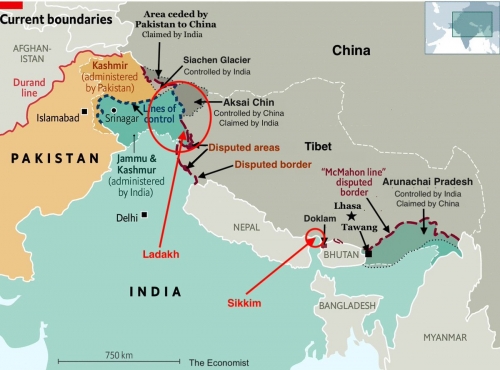


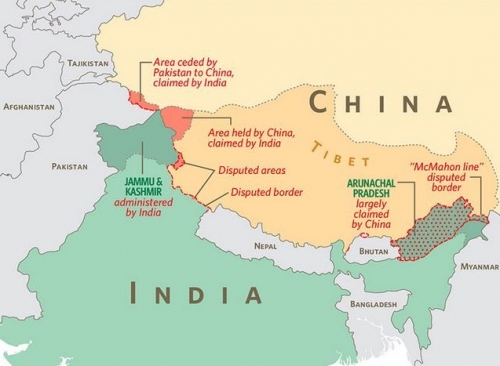






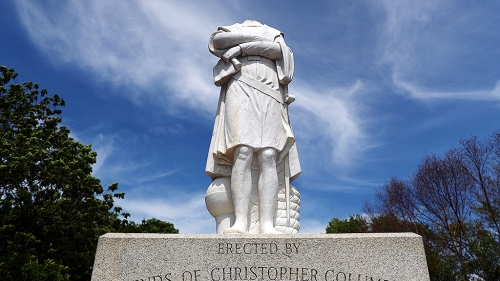


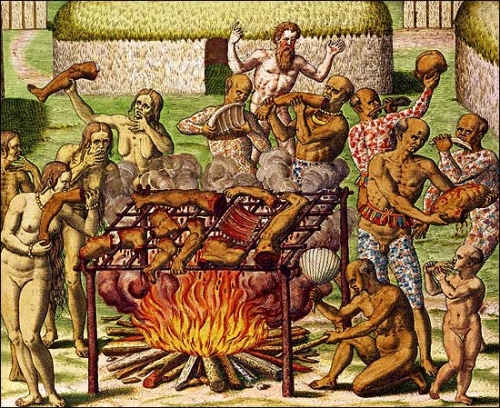







 The Color Revolution Otpor! model was refined and deployed in 2004 as the Ukraine Orange Revolution with logo and color theme scarves, and in 2003 in Georgia as the Rose Revolution. Later Secretary of State Hillary Clinton used the template to launch the Arab Spring. In all cases the NED was
The Color Revolution Otpor! model was refined and deployed in 2004 as the Ukraine Orange Revolution with logo and color theme scarves, and in 2003 in Georgia as the Rose Revolution. Later Secretary of State Hillary Clinton used the template to launch the Arab Spring. In all cases the NED was 







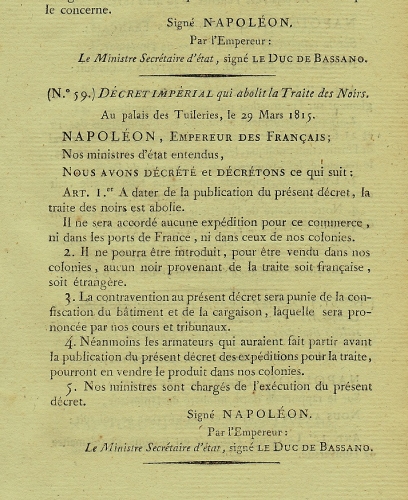













 Tout au long de ses périples, il s’attache au sort des derniers peuples de moins en moins préservés de la modernité. Dans Qui se souvient des Hommes… (Robert Laffont, 1986), il retrace d’une manière poignante la fin des Alacalufs. Avec son extraordinaire Journal peau-rouge (1975, réédition en 2011 chez Atelier Fol’Fer), il témoigne de la situation inégale des tribus amérindiennes parquées dans les réserves. Certaines s’y étiolent et aspirent seulement à la fin de l’histoire. D’autres, les Navajos par exemple, formulent, grâce à l’exploitation des ressources naturelles, de grandes ambitions comme devenir le cinquante et unième État des États-Unis. Jean Raspail se plaît à romancer ses explorations quasi-anthropologiques dans La Hache des Steppes (1974, réédition en 2016 chez Via Romana), dans Les Hussards (Robert Laffont, 1982) et dans Pêcheurs de Lune (Robert Laffont, 1990).
Tout au long de ses périples, il s’attache au sort des derniers peuples de moins en moins préservés de la modernité. Dans Qui se souvient des Hommes… (Robert Laffont, 1986), il retrace d’une manière poignante la fin des Alacalufs. Avec son extraordinaire Journal peau-rouge (1975, réédition en 2011 chez Atelier Fol’Fer), il témoigne de la situation inégale des tribus amérindiennes parquées dans les réserves. Certaines s’y étiolent et aspirent seulement à la fin de l’histoire. D’autres, les Navajos par exemple, formulent, grâce à l’exploitation des ressources naturelles, de grandes ambitions comme devenir le cinquante et unième État des États-Unis. Jean Raspail se plaît à romancer ses explorations quasi-anthropologiques dans La Hache des Steppes (1974, réédition en 2016 chez Via Romana), dans Les Hussards (Robert Laffont, 1982) et dans Pêcheurs de Lune (Robert Laffont, 1990). Toujours en avance sur son époque, Jean Raspail a compris que l’État républicain tue la France et son peuple au nom de valeurs mondialistes. La République parasite la France, lui vole toute sa vitalité et contribue au changement graduel et insidieux de la population. Il n’a jamais caché son royalisme sans toutefois se lier à un prince particulier. Sa conception de la restauration royale, plus métaphysique que politique d’ailleurs, exprimée dans Sire (Éditions de Fallois, 1991) se rapproche du providentialisme si ce n’est du Grand Monarque attendu. Il témoigne aussi de sa fidélité aux rois de France. Pour commémorer les deux cents ans de l’exécution du roi Louis XVI, il organise, le 21 janvier 1993 sur la place de la Concorde, une manifestation à laquelle participe l’ambassadeur des États-Unis en personne.
Toujours en avance sur son époque, Jean Raspail a compris que l’État républicain tue la France et son peuple au nom de valeurs mondialistes. La République parasite la France, lui vole toute sa vitalité et contribue au changement graduel et insidieux de la population. Il n’a jamais caché son royalisme sans toutefois se lier à un prince particulier. Sa conception de la restauration royale, plus métaphysique que politique d’ailleurs, exprimée dans Sire (Éditions de Fallois, 1991) se rapproche du providentialisme si ce n’est du Grand Monarque attendu. Il témoigne aussi de sa fidélité aux rois de France. Pour commémorer les deux cents ans de l’exécution du roi Louis XVI, il organise, le 21 janvier 1993 sur la place de la Concorde, une manifestation à laquelle participe l’ambassadeur des États-Unis en personne. Son œuvre serait maintenant difficile à publier tant elle dérange. Elle propose une solution : l’existence d’isolats humains. Dans La Hache des Steppes, le narrateur s’échine à retrouver les lointains descendants des Huns dans le village d’Origny-le-Sec dans l’Aube. Il raconte plusieurs fois l’histoire de ces déserteurs sous Napoléon Ier qui se réfugient dans des villages russes reculés où ils font souche. Dans « Big Other », Jean Raspail annonce qu’« il subsistera ce que l’on appelle en ethnologie des isolats, de puissantes minorités, peut-être une vingtaine de millions de Français – et pas nécessairement de race blanche – qui parleront encore notre langue dans son intégrité à peu près sauvée et s’obstineront à rester conscients de notre culture et de notre histoire telles qu’elles nous ont été transmises de génération en génération (p. 37) ». L’exemple de certaines réserves peaux-rouges résilientes est à méditer…
Son œuvre serait maintenant difficile à publier tant elle dérange. Elle propose une solution : l’existence d’isolats humains. Dans La Hache des Steppes, le narrateur s’échine à retrouver les lointains descendants des Huns dans le village d’Origny-le-Sec dans l’Aube. Il raconte plusieurs fois l’histoire de ces déserteurs sous Napoléon Ier qui se réfugient dans des villages russes reculés où ils font souche. Dans « Big Other », Jean Raspail annonce qu’« il subsistera ce que l’on appelle en ethnologie des isolats, de puissantes minorités, peut-être une vingtaine de millions de Français – et pas nécessairement de race blanche – qui parleront encore notre langue dans son intégrité à peu près sauvée et s’obstineront à rester conscients de notre culture et de notre histoire telles qu’elles nous ont été transmises de génération en génération (p. 37) ». L’exemple de certaines réserves peaux-rouges résilientes est à méditer… À la notable différence d’un histrion de gauche (pléonasme !) et d’un éditorialiste sentencieux mauvais observateur patenté de l’actualité, Jean Raspail ne bénéficiera pas d’une couverture médiatique digne de son œuvre. Il n’aura pas droit à des obsèques dans la cour d’honneur des Invalides. Qu’importe si en hussard de la flotte australe, il passe à l’ère d’un monde froid, triste et si moderne pour une sentinelle postée en arrière-garde. Ses lecteurs savent pourtant que l’auteur du Roi au-delà de la mer (Albin Michel, 2000) appartient aux éclaireurs, à l’avant-garde d’une élite reconquérante, d’une élite qui applique la devise de cette famille hautement européenne de devoir, d’honneur et de courage, les Pikkendorff : « Je suis d’abord mes propres pas. » Jean Raspail l’a toujours fait sienne, du Cap Horn au Septentrion, de l’Ouest américain à L’île bleue (Robert Laffont, 1988).
À la notable différence d’un histrion de gauche (pléonasme !) et d’un éditorialiste sentencieux mauvais observateur patenté de l’actualité, Jean Raspail ne bénéficiera pas d’une couverture médiatique digne de son œuvre. Il n’aura pas droit à des obsèques dans la cour d’honneur des Invalides. Qu’importe si en hussard de la flotte australe, il passe à l’ère d’un monde froid, triste et si moderne pour une sentinelle postée en arrière-garde. Ses lecteurs savent pourtant que l’auteur du Roi au-delà de la mer (Albin Michel, 2000) appartient aux éclaireurs, à l’avant-garde d’une élite reconquérante, d’une élite qui applique la devise de cette famille hautement européenne de devoir, d’honneur et de courage, les Pikkendorff : « Je suis d’abord mes propres pas. » Jean Raspail l’a toujours fait sienne, du Cap Horn au Septentrion, de l’Ouest américain à L’île bleue (Robert Laffont, 1988).


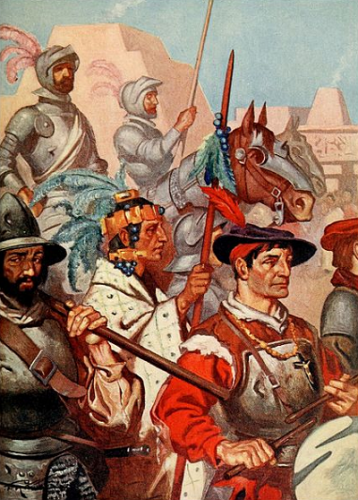
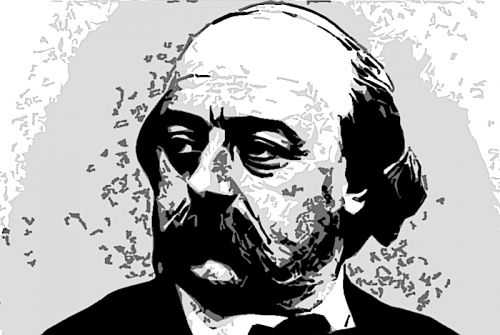
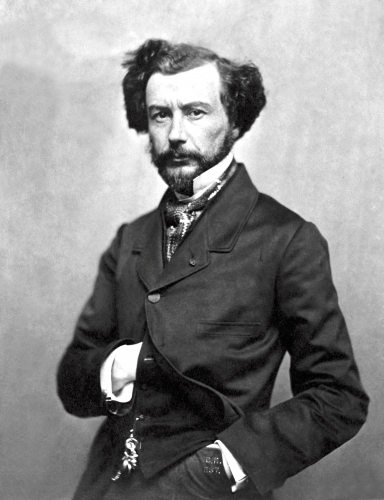
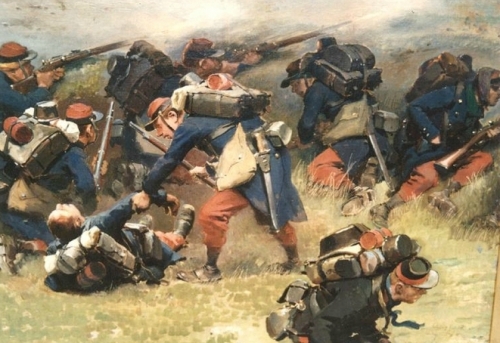
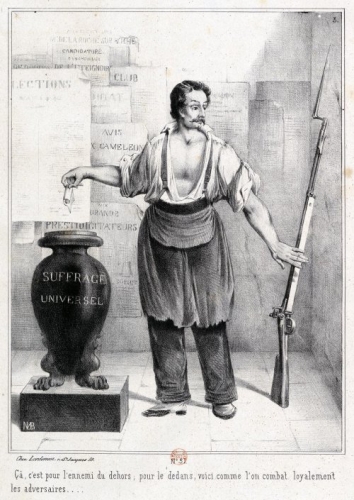
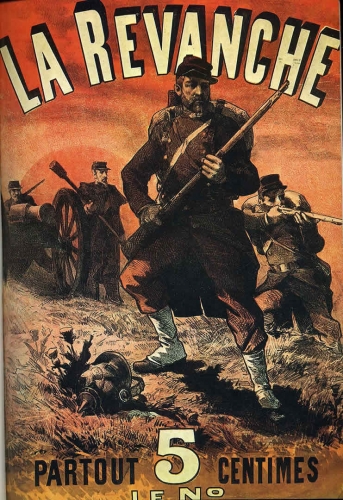
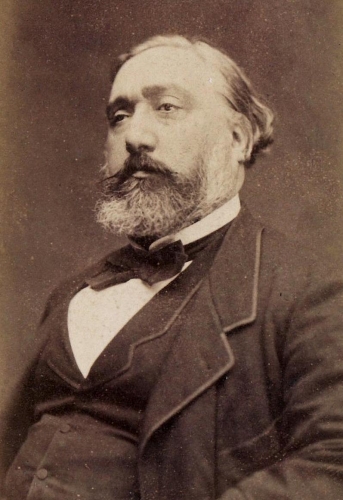




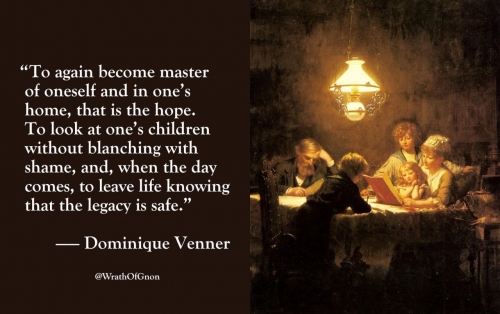












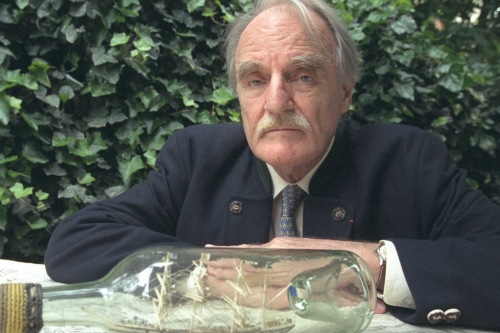
 Qui se souvient des Hommes ? était le titre de ce « roman » consacré aux Alakalufs. Ce livre aurait pu être présenté comme une « épopée » ou une « tragédie » humaine, recréant le destin de ces êtres, nos frères, que les hommes qui les virent hésitèrent à reconnaître comme des Hommes.
Qui se souvient des Hommes ? était le titre de ce « roman » consacré aux Alakalufs. Ce livre aurait pu être présenté comme une « épopée » ou une « tragédie » humaine, recréant le destin de ces êtres, nos frères, que les hommes qui les virent hésitèrent à reconnaître comme des Hommes.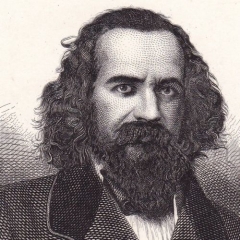 Déjà, en 1981, Jean Raspail avait publié Moi, Antoine de Tounens, roi de Patagonie ou le destin vécu d’un aventurier français qui débarqua en Argentine en 1860 et se fit proclamer roi d’Araucanie et de Patagonie par les populations indigènes locales. Ce livre avait obtenu le prix du roman de l’Académie française. Cet ouvrage relate l’histoire d’un aventurier venu du « Périgord vert » qui s’autoproclame roi, le 18 novembre 1860, par les tribus de cavaliers qui menaient contre l’Argentine et le Chili les derniers combats de la liberté et de l’identité. Il régna quelques mois, sous le nom d’Orllie-Antoine Ier (écrit parfois Orélie-Antoine Ier) galopant à leur tête en uniforme chamarré, sous les plis de son drapeau bleu, blanc, vert. Et puis, la chance l’abandonna. Trahi, jeté en prison, jugé, il parvint à regagner la France où un autre destin l’attendait, celui d’un roi de dérision en butte à tous les sarcasmes, mais jamais il ne céda. En effet, bien que le royaume n’existât plus, il créa autour de lui une petite cour, attribuant ainsi décorations et titres. Roi il resta, mais solitaire et abandonné, il mourut dans la misère le 17 septembre 1878, à Tourtoirac, en Dordogne, où il était né.
Déjà, en 1981, Jean Raspail avait publié Moi, Antoine de Tounens, roi de Patagonie ou le destin vécu d’un aventurier français qui débarqua en Argentine en 1860 et se fit proclamer roi d’Araucanie et de Patagonie par les populations indigènes locales. Ce livre avait obtenu le prix du roman de l’Académie française. Cet ouvrage relate l’histoire d’un aventurier venu du « Périgord vert » qui s’autoproclame roi, le 18 novembre 1860, par les tribus de cavaliers qui menaient contre l’Argentine et le Chili les derniers combats de la liberté et de l’identité. Il régna quelques mois, sous le nom d’Orllie-Antoine Ier (écrit parfois Orélie-Antoine Ier) galopant à leur tête en uniforme chamarré, sous les plis de son drapeau bleu, blanc, vert. Et puis, la chance l’abandonna. Trahi, jeté en prison, jugé, il parvint à regagner la France où un autre destin l’attendait, celui d’un roi de dérision en butte à tous les sarcasmes, mais jamais il ne céda. En effet, bien que le royaume n’existât plus, il créa autour de lui une petite cour, attribuant ainsi décorations et titres. Roi il resta, mais solitaire et abandonné, il mourut dans la misère le 17 septembre 1878, à Tourtoirac, en Dordogne, où il était né.



